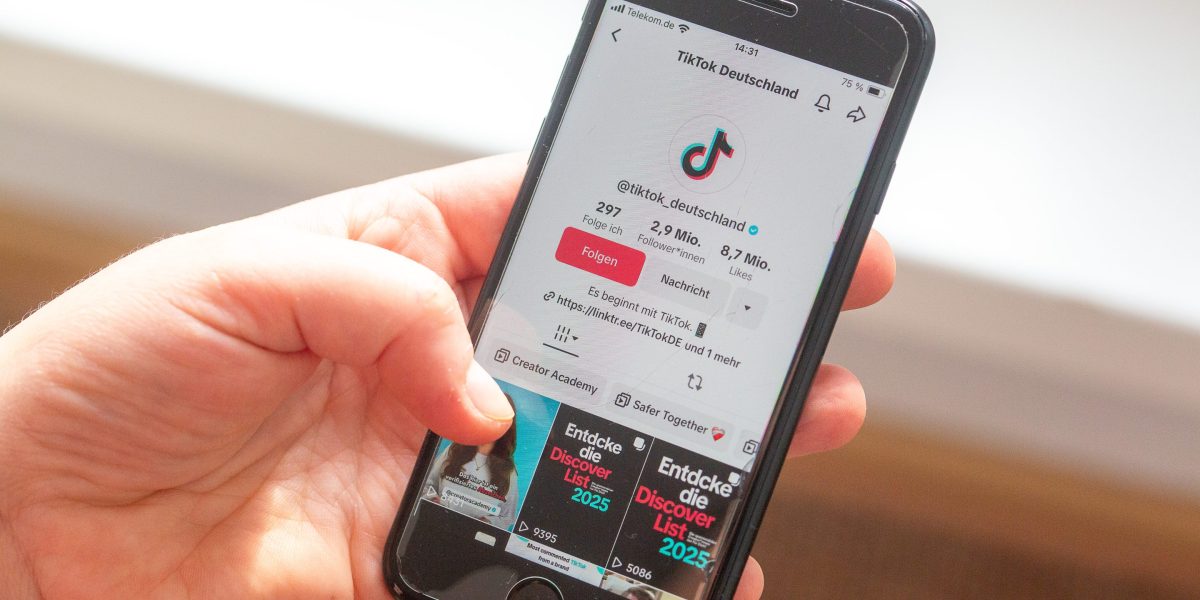Automakers including General Motors Co. and Hyundai Motor Co. reported higher US auto sales as the threat of price hikes from President Donald Trump’s tariffs drove consumers to showrooms.
GM’s deliveries soared 17% in the first quarter, with a 15% gain in retail volume, the company said Tuesday. Ford Motor Co. saw retail sales rise while Toyota Motor Corp. reported slight growth in the first three months of the year.
The past weekend was “by far the best weekend I’ve seen in a very long time,” Randy Parker, the chief executive officer of Hyundai and Genesis in North America, told reporters. “Lots of people rushed in this weekend, especially to try and beat the tariffs.”
The just-ended quarter may end up being the last of relative normalcy before the industry is upended by Trump’s 25% tariffs on passenger-vehicle imports that take effect this week. Cars assembled overseas account for about half of US auto sales. And even cars made domestically often use a significant amount of non-US parts, some of which may also be subject to levies.
Researchers including Edmunds and Cox Automotive had predicted volumes would likely get a boost from anxious shoppers buying before prices potentially rise.
“The prospect of tariffs is already beginning to affect the industry,” Thomas King, president of data and analytics at JD Power, said in a statement. March results were “particularly strong, enabled by consumers accelerating purchases to avoid potential tariff-related price increases.”
Hyundai saw record sales for the latest month and quarter, buoyed by double-digit gains in demand for its best-selling Tucson small SUV and Elantra compact sedan. For the first three months, Hyundai said Tuesday that it saw a 10% gain in deliveries to 203,554 vehicles, boosted by a 13% jump last month.
Sister brand Kia Corp. similarly posted record sales, with an 11% rise in the January to March period to 198,850 vehicles. Buyers snapped up its compact Sportage SUV and new K4 sedan.
GM’s sales in March were strong, a company spokesman said, though it’s difficult to quantify how much came from buyers trying to get ahead of Trump’s tariffs. The Detroit-based automaker’s big gains came from freshened versions of the Chevrolet Colorado mid-size pickup, which was up 73%, while sales of the Chevy Traverse mid-sized SUV rose 62%.
Toyota sales grew 7.7% in March, but less than 1% in the year-to-date period. Deliveries of the Japanese automaker’s best-selling RAV4 compact SUV and Camry midsize sedan declined during the latest month and quarter. The two models are Toyota’s top sellers and inventories are tight, a US-based spokesman for the carmaker said.
Sales of Lexus luxury brand vehicles rose 5.8% in March and 14% in the January-March period.
Ford saw a 5% quarterly gain in retail sales and 19% jump in March alone. But overall volume slipped 1.3% in the first quarter to 498,480 units, excluding heavy trucks. That was largely due to lower rental fleet sales and the discontinuation of two models, the company said.
Honda reported a 5% rise in first—quarter sales and a 13% jump in March across its namesake brand and Acura luxury vehicle lines. Deliveries of the Japanese carmaker’s top-selling CR-V crossover grew 9% in the quarter and 24% last month.
Tesla Inc. is expected to detail its global delivery numbers for the most recent quarter on Wednesday.
Tariff Threats
Representatives of several large US automakers have been lobbying the Trump administration to exclude certain low-cost car components from the planned tariffs, Bloomberg News reported Monday.
While it’s not clear how new costs will be distributed between automakers, suppliers and car buyers, prices are expected to rise considerably. A recent study by Anderson Economic Group found that the tariffs could increase the cost to build vehicles by as much as $12,000. That could make some models unviable in the US, particularly at the lower end of the market.
Sales of Chevy’s South Korea-made Trax small SUV rose 57%. That vehicle faces a 25% tariff starting April 3.
GM’s electric-vehicle sales nearly doubled in the quarter, led by its Mexico-made Chevy Blazer and Equinox EVs. Those models would be hit by tariffs on their non-US parts content if Trump sticks to his original plan.
Dealers have seen a surge in demand from would-be buyers worried about prices. Chevrolet dealer Duane Paddock said GM sent an unusually large amount of inventory to meet the buyer interest.
US dealerships are sitting on about 60 to 90 days of inventory on average, providing them with a cushion against the immediate effects of the tariffs.
“It has created an urgency to buy it now before there’s a price increase,” Rhett Ricart, a dealer of Ford, Chevrolet, Hyundai and other brands in Columbus, Ohio, said.
This story was originally featured on Fortune.com
Source link


 Entertainment8 years ago
Entertainment8 years ago
 Politics8 years ago
Politics8 years ago
 Entertainment8 years ago
Entertainment8 years ago
 Entertainment8 years ago
Entertainment8 years ago
 Tech8 years ago
Tech8 years ago
 Tech8 years ago
Tech8 years ago
 Tech8 years ago
Tech8 years ago
 Politics8 years ago
Politics8 years ago






